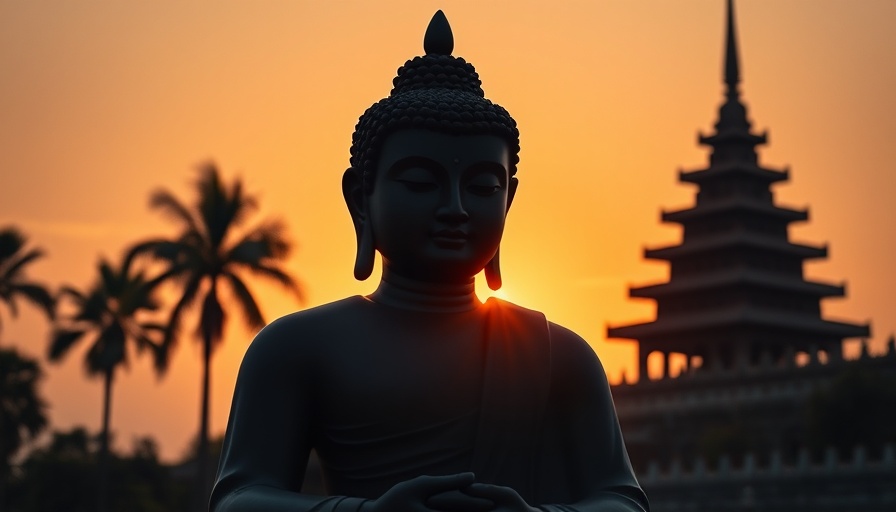
Understanding the Roots of the Name ‘Siddhartha’
Siddhartha, a name closely associated with spiritual paths, particularly in Buddhism, has profound meaning. Often misunderstood, this name embodies the journey towards enlightenment and the cultivation of mindfulness, making it a perfect symbol for those seeking mental clarity in the midst of life's turmoil. For individuals grappling with stress or navigating the complexities of youth and community issues, understanding what Siddhartha represents can be a breath of fresh air.
The Link Between Name and Mindfulness
Mindfulness, as a practice, offers tools that resonate deeply with the essence of Siddhartha. Meditation, which emerged from traditions tied to the name, can serve as a refuge for those facing mental health challenges. In South Africa, where youth crime and societal pressures can overwhelm, practices inspired by Siddhartha encourage the development of resilience and self-efficacy. Those exploring the depths of their minds might find solace by embracing the core teachings behind the name as a way to combat stress and cultivate peace.
Lessons from Siddhartha's Journey
Siddhartha Gautama's transformation from a sheltered prince to the Buddha offers valuable life lessons, particularly for young people grappling with identity and purpose. His pilgrimage teaches us about the importance of self-discovery and the courage required to step outside one’s comfort zone. For many youths in today’s society, understanding this journey can inspire action towards personal growth and mental health improvement, steering them away from unhealthy coping mechanisms.
Practical Steps for Embracing Mindfulness in Daily Life
Embracing mindfulness doesn’t require you to be a seasoned meditator. Start with these simple practices that align with the spirit of Siddhartha:
- Breathe Deeply: Take a few moments each day to focus on your breath. This simple act can ground you and alleviate stress, offering clarity during turbulent times.
- Daily Reflection: Take time to reflect on your day. Write down thoughts related to challenges faced and how you might respond differently, paralleling Siddhartha’s introspection.
- Connect with Nature: Nature writing or simply taking walks can enhance your connection with the world, similar to Siddhartha’s own journey of observation and awareness.
Young People and the Importance of Self-Efficacy
Self-efficacy, or the belief in one’s ability to succeed, can be greatly impacted by understanding and integrating Siddhartha’s teachings into daily experiences. For youths struggling with their identity or societal expectations, learning this principle can be empowering. Support from caregivers, educators, and mental health professionals can further bolster these beliefs, guiding them towards paths of resilience.
Building a Supportive Community
Communities can play a significant role in mental health and mindfulness. Forming groups that focus on shared experiences, meditation, and discussions about the teachings of Siddhartha can create a supportive environment. Such connections help individuals feel less isolated and more understood, happening particularly in communities affected by social stigmas, such as those related to HIV or mental health issues.
Inspiration from Personal Stories
Reflecting on stories where individuals transformed their lives through mindfulness can inspire others. For instance, a youth who managed to navigate the challenges of education and family life while practicing mindfulness techniques inspired by Siddhartha’s journey serves as testimony to the power of belief and self-discovery. These narratives affirm that it is indeed possible to overcome struggles.
Calling on Readers to Engage
The significance of understanding the name Siddhartha transcends cultural boundaries and speaks to universal challenges. Whether you’re a sufferer, educator, or simply searching for peace within the chaos of life, integrating mindfulness into your day can lead to clearer paths and stronger minds. Join community discussions, explore therapy options, and practice meditation to foster resilience and contribute to a healthier society.
 Add Row
Add Row  Add
Add 




 Add Row
Add Row  Add
Add
Write A Comment